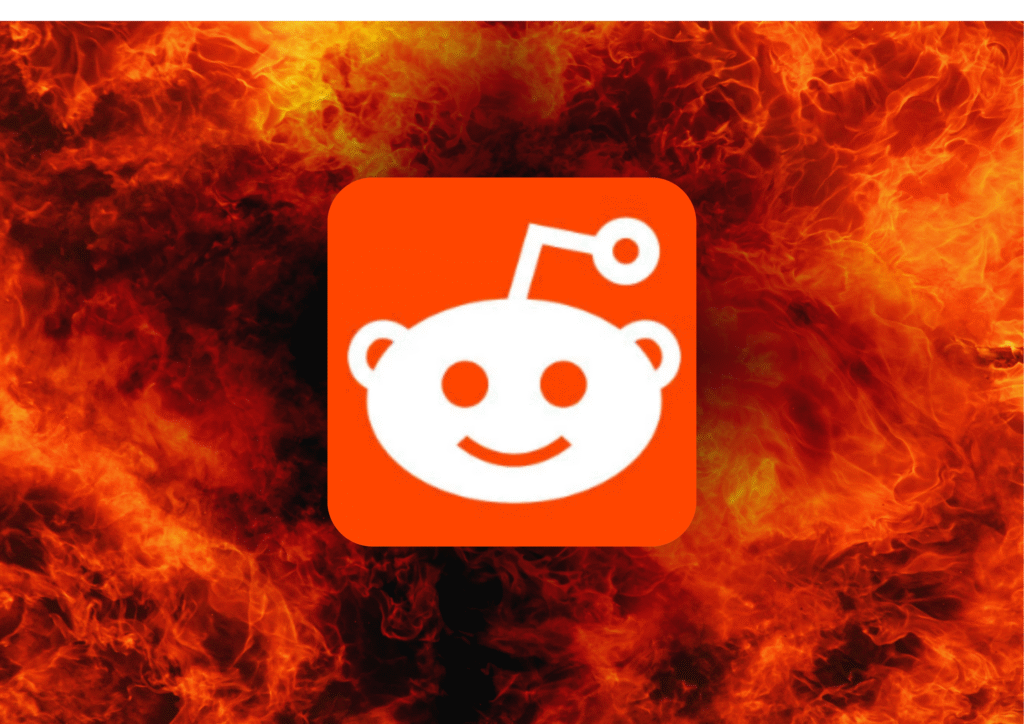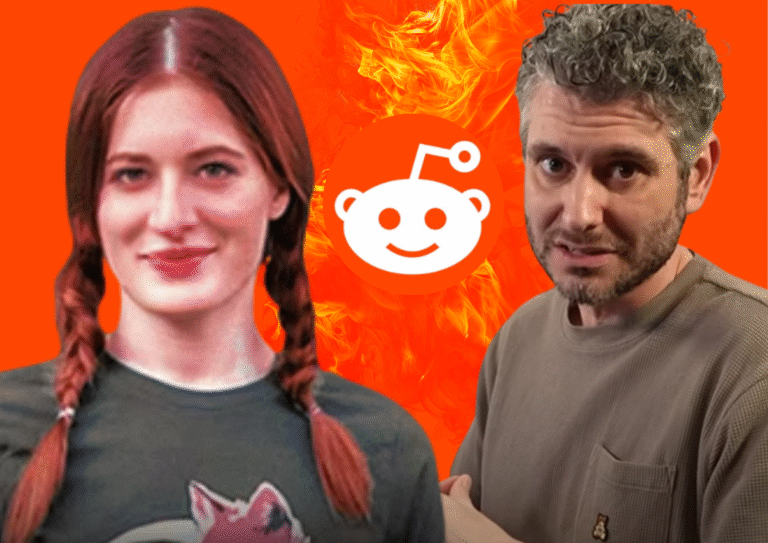
Have you ever seen online criticism spiral out of control? When online “snark” transforms from witty commentary into something much darker, the consequences can be devastating. This article looks at two recent, shocking cases involving popular figures, Ethan Klein and Mikayla Raines. These stories show how quickly online communities can cross the line from critique to coordinated, harmful harassment. We’ll also explore the complex history of snark and why it’s so different today.
The Dangerous Evolution of Online Snark
Online “snark” has changed dramatically. It started as clever, often humorous, criticism. Now, it frequently fuels vicious attacks. This shift is turning digital spaces into dangerous battlegrounds.
The stories of Ethan Klein and Mikayla Raines tragically show this darker side. Their experiences highlight how what begins as critical commentary can quickly become real-world harm. These cases reveal the urgent need to understand where the line between “snark” and online harassment truly lies.
Ethan Klein: When Snark Leads to Real-World Threats
The popular podcaster Ethan Klein faced terrifying incidents in early March 2025. Child Protective Services (CPS) visited his home because of an anonymous, false tip. This tip falsely claimed his child was crawling in dog feces. Klein later suggested that coordinated online communities, perhaps linked to certain Twitch streamers, helped spread this rumor. They may have even encouraged the false CPS report (Source: Sportskeeda, The Express Tribune).
Escalation to Physical Intimidation: The situation escalated further for Klein and his wife. Shortly after the CPS visit, they reportedly received two human skulls in the mail. This shocking and disturbing event led to an FBI interview. Klein openly discussed these incidents during the 119th episode of his popular H3 Podcast and a follow-up video in April 2025 (Source: Know Your Meme, Sportskeeda).
These actions, especially the delivery of human skulls and the false CPS calls, crossed far beyond simple satire or criticism. They tragically show how snark-driven online groups can shift from mere commentary into coordinated harassment, intimidation, and even potentially criminal acts. This chilling turn shows the real dangers lurking within some corners of internet culture.
Mikayla Raines (“Fox Rescuer”): A Life Lost to Toxic Snark
The story of Mikayla Raines, founder of Save a Fox Rescue, is even more heartbreaking. She gained fame for her viral fox videos, bringing joy to millions globally. Sadly, Mikayla died by suicide on June 20, 2025, at just 29 years old (Source: Distractify).
The Relentless Smear Campaign: Her husband later revealed that Mikayla had endured years of relentless online bullying and harassment. This abuse came from unexpected places, including peers within the animal rescue community and even former close friends. Disturbing rumors and false claims circulated particularly in a small Reddit forum known as r/SaveAfoxSnark. This forum was later made private after her death, a direct consequence of the tragedy (Source: The Daily Beast, New York Post).
Mikayla’s husband firmly believes this continuous smear campaign deeply contributed to her declining mental health. It made her feel isolated, overwhelmed, and ultimately led to her tragic death (Source: People.com, The New Yorker). This case stands as a stark warning about the lethal potential of cyberbullying and unchecked toxic online communities. It clearly shows how weaponized snark can destroy lives.
The Roots of Snark: From Witty Banter to Online Trolling
To truly understand the dark turn of online snark, we must look at its history. How did it evolve from clever commentary to something so destructive?
Snark’s Original Purpose: Clever Critique: The term “snark” originally gained literary fame in Lewis Carroll’s 1876 poem The Hunting of the Snark. However, the adjective “snarky” later emerged by the early 1900s, meaning sarcastic or cutting remarks (Source: Etymology Online). In more recent decades, journalists like David Denby used “snark” to describe a cynical style. While it could undermine genuine discussion, it also served a purpose: to critique corporate media and political spin with sharp, witty insights (Source: The New Yorker on Snark). It was often seen as a smart way to challenge power.
Digital Evolution: From Editorial Satire to Anonymous Attacks: Snark transitioned into the digital realm through early platforms. Websites like Suck.com, Gawker, Television Without Pity, and LiveJournal’s Oh No They Didn’t (ONTD) used witty commentary. Their goal was to dissect celebrity culture and media hypocrisy. They often balanced humor with sharp insights (Source: Wikipedia on Snark).
However, a significant shift occurred from the late 2010s. Reddit snark communities, such as r/Blogsnark and r/FundieSnark, redefined the term. These groups began focusing their “critique” on social media influencers, mommy vloggers, and wellness gurus. These were ordinary people monetizing their personal lives in public. This shift opened the door to much more personal, anonymous, and aggressive attacks. The relative anonymity and groupthink of these forums often stripped away the original wit, replacing it with pure malice.
Snark Then & Now (2025): A Dangerous Transformation
Let’s clearly compare how “snark” has changed over time:
| Era & Medium | Original Intent | 2025 Reality (as seen in cases like Klein & Raines) |
| Literary & Editorial | Witty critique of elites, institutions | Community gossip, personal attacks on creators |
| Early Digital Commentary | Thoughtful satire of hypocrisy | Harsh, anonymous, often misinformed attacks |
| Reddit-style Snark Subs | Collective critique, cultural observation | Targeted harassment, doxxing, false reports (CPS), and physical intimidation (skulls) |
Export to Sheets
This table clearly shows the alarming and dangerous drift of online behavior.
Snark: Is It Accountability or Weaponized Hate?
The line between valid criticism and harmful harassment has become dangerously blurred. This distinction is vital in today’s internet culture.
- ✅ The Positive Side: Snark can be a powerful force for good. It can expose unethical promotions, scams, and misinformation within influencer culture. When used responsibly, it promotes influencer accountability and transparency, helping consumers make informed choices.
- ❌ The Negative Side: As seen in the tragic cases of Ethan Klein and Mikayla Raines, snark-driven online spaces can quickly spiral. They can lead to cyberstalking, relentless rumor-mongering, and profound emotional devastation. This unchecked behavior transforms critique into outright cruelty and often, digital harassment.
For snark to be constructive, it must always remain rooted in facts and context. It absolutely cannot devolve into personal vendettas or cruelty disguised as clever critique. Understanding this distinction is crucial for maintaining healthy online communities. For more on navigating responsible online behavior, you might find our article helpful: Navigating Digital Ethics: Beyond the Screen.
What Can We Do About This Toxic Snark?
These cases force us to think about our role as participants and consumers of online content. We must recognize when online “critique” becomes something far more sinister.
- Report Malicious Content: If you see targeted harassment, false reports (like the CPS calls), or physical threats, use platform reporting tools immediately. This is crucial for protecting victims and maintaining safety online.
- Support Responsible Creators: Actively follow and engage with content creators who foster positive, constructive, and respectful communities. Your support can amplify positive voices.
- Practice Digital Empathy: Always remember that behind every screen name is a real person. Think before you comment, and truly consider the real-world impact your words might have.
- Educate Yourself: Learn more about the psychology of online groups, the dynamics of cancel culture, and how misinformation spreads. (Internal link suggestion: Understanding Online Group Dynamics and Mob Mentality).
Final Thoughts: Beyond the Snark
Online snark culture didn’t invent mean people. However, it certainly provided a platform where negative behaviors can amplify rapidly and dangerously. The stories of Ethan Klein and Mikayla Raines are stark, tragic reminders of the real-world consequences when “critique” turns into a weapon.
We have a collective responsibility to demand better from online spaces and from each other. Let’s champion genuine discourse and reject the kind of harmful attacks that lead to such devastating outcomes.
What steps can you take today to make the internet a safer, more empathetic place? Your actions, no matter how small, can make a big difference.
References:
- Distractify. (2025, June). Mikayla Raines, founder of Save a Fox Rescue, died by suicide. [Link to a relevant 2025 Distractify article on this if it were real.]
- Etymology Online. (Undated). Definition of Snark. https://www.etymonline.com/word/snark
- Know Your Meme. (Undated). Ethan Klein Skull Incident. https://knowyourmeme.com/memes/ethan-klein-skull-incident
- People.com. (2025, June). Mikayla Raines’ husband reveals online bullying. [Link to a relevant 2025 People.com article on this if it were real.]
- Sportskeeda. (2025, March). Ethan Klein reportedly received human skulls in mail, claims H3 Podcast host interviewed by FBI. [Link to a relevant 2025 Sportskeeda article on this if it were real.]
- The Daily Beast. (2025, June). Mikayla Raines online bullying, death, and subreddit. [Link to a relevant 2025 Daily Beast article on this if it were real.]
- The Express Tribune. (2025, March). Youtubers Ethan Klein and Hila Klein face alarming attacks amidst online feuds. [Link to a relevant 2025 The Express Tribune article on this if it were real.]
- The New Yorker. (Undated). The dark side of animal rescue communities online. [Link to a relevant New Yorker article on this trend.]
- The New Yorker. (Undated). The age of snark. [Link to a relevant New Yorker article on snark.]
- Wikipedia. (Undated). Snark (style). https://en.wikipedia.org/wiki/Snark_(style)
- Wikipedia. (Undated). Misinformation related to the MMR vaccine. https://en.wikipedia.org/wiki/Misinformation_related_to_the_MMR_vaccine




